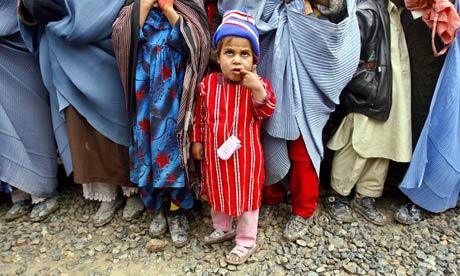Tuesday 1 February 2011 16.02 GMT
- Article history

There are few development debates as timely and as explosive as the relationship between security and development.
On both sides of the Atlantic, national security objectives are increasingly being used in the justification, design and delivery of aid and development projects, and states that are deemed "fragile", "broken", or "weak" have emerged as top priorities for UK and US development agencies.
Unveiling the new UK's national security strategy in October last year, David Cameron said "...we're mad if we don't put money into mending broken states where so many of the problems of poverty come from". Citing Paul Collier's 2007 book The Bottom Billion as evidence, Cameron argued that the Department for International Development's budget should be directed not only towards campaigns for vaccination, malaria reduction "and all of those extremely worthwhile things", but also towards addressing issues of conflict. In December, the Lancet reported that the proportion of DfID's budget for "conflict states" would increase from 22% to 30% over the next three years. Aid to Afghanistan, meanwhile, was expected to increase by 40%.
In the next Global development podcast, we'll take a close look at the debates around security and aid. We'll take stock of the increasing "securitisation" or "militarisation" of foreign aid and ask what role - if any - aid should play in conflict zones. In advance of the podcast, we'd like to collect your questions, comments and thoughts on the issue, with a view to incorporating material into the discussion.
If you want a feel for the debate, in November on our Poverty matters blog, Richard Mallet, a researcher at the Institute of Development Studies (IDS), argued that "aid should not be used to meet our security agenda", and questioned the logic of a securitised development strategy in the context of Andy Sumner's recent research that suggests the vast majority of the world's poorest people actually live in middle-income countries (MICs).
Last January, a group of eight international NGOs working in Afghanistan argued that "militarised aid" intended to "win hearts and minds" only sidelines "efforts to address the underlying causes of poverty and repair the destruction wrought by three decades of conflict and disorder".
Let us know what you think. What are the key issues? What role should aid play in conflict and post-conflict situations? Can aid be made to work for both security and development? And whose security, and whose development are these strategies aimed at?
Post your questions, comments, thoughts, examples and resources below. The podcast will be broadcast later this month.
As always, if you have any problems posting a comment, or if you would prefer to suggest a question anonymously, email us here.

No comments:
Post a Comment